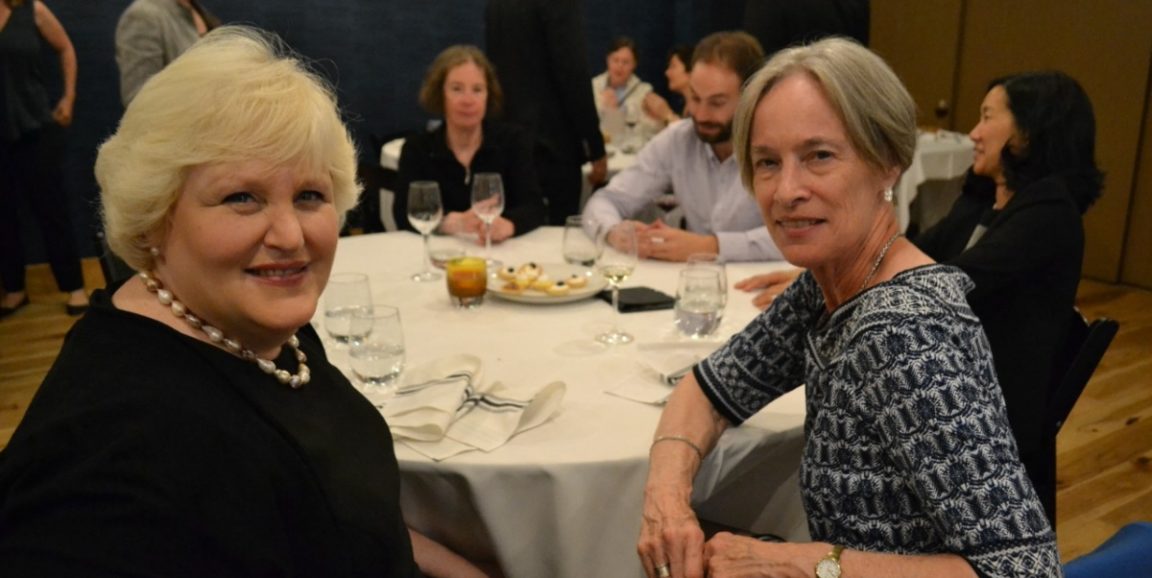The first time I saw Amy Berman, RN, speak she was standing on a glacier telling her Twitter friends (via video selfie) how "absolutely beautiful" Iceland was. She was snowmobiling and wished everyone could join her there. Genuine joy radiated from her face and a broad smile touched her cheeks made rosy by the cold.
"Can you believe I'm living well with stage IV breast cancer?" she asked.
Honestly, I couldn't -- I'd lost a parent and two best friends to cancer, and snowmobiling on a glacier at stage IV just didn't line up with my experience of the disease. Then I heard Berman share her story at the recent Jonathan King Lecture series, and I began to understand.
Palliative care expert Stephanie Harman, MD, welcomed guests to the event sponsored by Stanford's Center for Biomedical Ethics. She explained that King, a computer scientist "with a deep concern for the dignity of all individuals" gave the first lecture 28 years ago before dying of cancer at age 41 so others could know the choices that patients and families face near death.
"I'm going to put you into the perspective of someone who has a serious illness to discuss what matters most," Berman said. "It may or may not be what you think."
"People often view palliative care as 'turning off' care for a patient, when in reality it may be the thing that helps keep them going," she said before sharing:
About eight years ago, I had a red spot appear on my right breast. It was a very funny-looking spot. It looked like the skin of an orange.
The spot was a cardinal sign of inflammatory breast cancer, a serious and rare form of the disease. Berman got a mammogram, a biopsy and a diagnosis the next day.
She described sitting outside the radiology room next to an "elegant woman in pearls," both of them wearing white waffle weave robes. We looked like "we were set up to get mani-pedis" instead of waiting for radiographs, Berman said.
Suddenly all of the fellows were called into the radiology room, Berman recalled:
The very elegant woman in pearls looked like she was gonna throw up. You could just tell that she thought it was her, but in my heart of hearts I knew that it was me.
...
I said, 'I'm Amy Berman, are those my images?'The woman asked everybody to leave the room and invited me in. She said, 'Would you like to meet the enemy?'
And that's how I found out that I had cancer.
Others may not wish to learn they had cancer in this way, Berman acknowledged, but she was grateful. "I'm sure that it was against every single protocol for this woman to tell me," Berman said. "I'll never forget her kindness."
The first oncologist Berman met with asked what was important to her. At the time, she had no noticeable symptoms other than the red spot and a little pain on the breast.
"I want the Niagara Falls trajectory," Berman said, "I want to feel good, good, good and then drop off the cliff." This oncologist said she could make a treatment plan that would keep Berman feeling well as long as she could.
The second oncologist Berman saw reconfirmed her diagnosis, but didn't ask what kind of care she wanted. Instead, he told Berman, "this is what we are going to do." She'd get the most intense chemotherapy her body could handle, a mastectomy and another round of intense chemotherapy.
"I'm stage IV," Berman said to the audience. "The cat's out of the bag." The cancer was already in her lower spine and bloodstream. Berman chose the first oncologist.
"If I went with the other clinician I would have dropped off a cliff at the beginning and gone out to the same end point," Berman said.
Berman chose not to pursue aggressive therapy, but she does receive therapy and confers with her oncologist and palliative care team to identify treatments that help her stay active and control her pain.
She receives infusions to keep her bones strong and received single fraction radiation, a therapy her palliative care providers recommended, to reduce the sharp pain caused by cancer advancing up her spine. Palliative care, she said, is "the best friend of the seriously ill."
"What do people want most when living with serious illness?" Berman asked at one point, displaying a photo of her standing alongside a surfboard. With a twinkle in her eye she said, "as a surfer, I can say that I want to live well."
Photo of Amy Berman (left) and Ms. King (right) by Kelly Cox-Gonzalez




